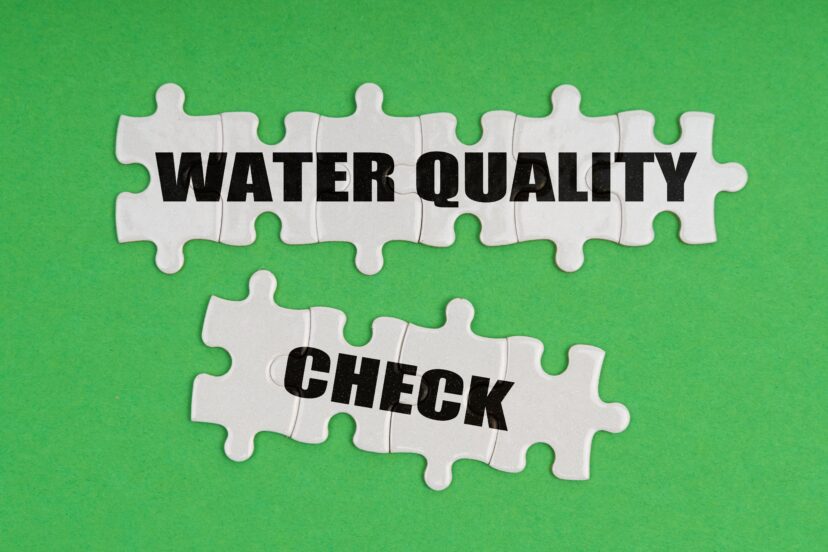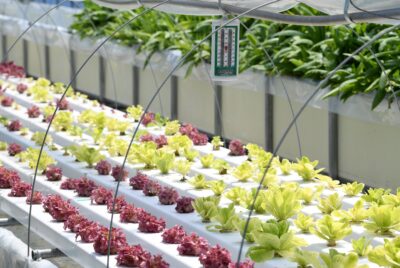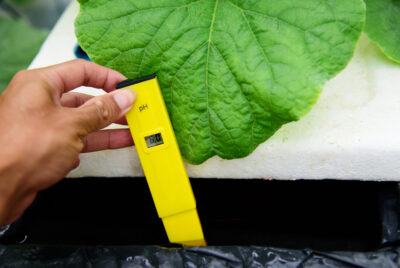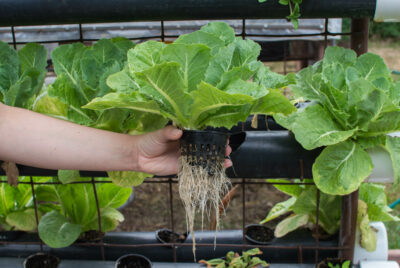Water Quality for Hydroponics
We may earn a commision from purchases made using our links. Please see our disclosure to learn more.
The Importance of Water Quality for Hydroponics.
Have you ever considered how vital water quality in hydroponics is to the lifeblood of a hydroponic garden? It’s not merely about using water but ensuring that this water is of high quality. Hydroponics, the innovative method of cultivating plants without soil, is quickly becoming a favorite among both hobbyists and commercial farmers. Yet, the essence of hydroponics goes beyond simply substituting soil with water; it’s about guaranteeing that this water serves as a nourishing elixir for your verdant charges.
Embracing the Essence of Hydroponics
When you step into the world of hydroponics, you aren’t just growing plants; indeed, you’re crafting an ecosystem. Water isn’t just a medium—it’s the lifeblood of your garden, circulating nutrients, oxygen, and the very essence of life to your plants. Consequently, as an enthusiast turned advisor in the realm of indoor hydroponic gardening, I’ve come to appreciate the delicate balance of quality water management. Therefore, let me share with you the secrets of nurturing your garden with the purest of waters.
Understanding Hydroponic Water Management
The Foundation of a Flourishing Hydroponic System
Diving into the science of water quality for hydroponics, I must stress emphatically the importance of starting with a solid foundation. Your water source is the initial brick in building your garden. Tap water, while convenient, often comes laced with chlorine or chloramines, which are intended to make water safe for us humans but not always ideal for our green friends. As a result, I learned quickly to test my water with a simple kit, checking for pH, total dissolved solids (TDS), and the presence of any unwanted chemicals. Indeed, believe me, your plants will feel the difference.
Adjusting Hard or Soft Water
The hardness or softness of water can be a game-changer. Hard water, rich in minerals like calcium and magnesium, can contribute to nutrient imbalances, while, conversely, soft water might necessitate additional supplementation. Thus, I’ve found a middle ground by using a water softener and carefully adjusting my nutrient solutions to match.
pH and EC Levels: The Twin Pillars of Nutrient Uptake
Regulating pH: The Heartbeat of Hydroponics
Consider pH as the heartbeat of your hydroponic system. If the beat is off, so is everything else. Plants are picky eaters; they only absorb nutrients within a narrow pH window. Likewise, a digital pH meter has become my best friend, allowing me to make precise adjustments, and ensuring that my plants always have access to their nutrient buffet.
Understanding EC: The Pulse of Plant Nutrition
Electrical Conductivity (EC) measures the salt concentration in your water—essentially, how ‘thick’ the nutrient soup is. An EC meter helps keep this in check. If the level is too low, your plants are starving; alternatively, if it’s too high, you risk nutrient burn. The sweet spot? It varies, but I aim for an EC that supports vigorous growth without overwhelming my plants.
Water Temperature: The Comfort Zone of Roots
Maintaining Ideal Water Temperatures
Just like us, plants have a comfort zone—the perfect water temperature for optimal growth. If the water is too cold, their roots can go into shock. Conversely, if it’s too warm, you might as well be inviting bacteria and root rot to a banquet. Therefore, I maintain a steady 68°F (20°C) to keep my plants comfortable and productive by using a water chiller.
Oxygenation: Breathing Life into Your Water
The Role of Oxygen in Root Health
Oxygen in hydroponics isn’t just important—it’s essential. Roots need to breathe, and oxygen-rich water is akin to a fresh mountain breeze to them. Subsequently, an air pump and air stone can transform stagnant water into a lively, oxygenated environment in which roots thrive in.
Hydroponic Fertilizer: Feeding Your Plants Well
Choosing and Mixing Nutrients
Selecting the right nutrient mix is akin to choosing the best food for your pet; it makes all the difference. I mix my nutrients with care, measuring to the milliliter to provide a balanced diet tailored to my plants’ growth stage. Observing your plants respond to a well-made nutrient solution is akin to watching an athlete on a good diet—performance is noticeably better.
Preventing and Addressing Contaminants
Navigating Through Potential Water Pollutants
The enemies of hydroponic purity are numerous—minerals, metals, and microbes that lurk in water waiting to cause trouble. To counter this, I invested in a solid filtration system, and at times, even resorting to reverse osmosis when I needed purity akin to a scientific lab. Indeed, prevention is the best medicine when it comes to water quality.
Water Change Schedule
Timing Your Water Changes for Success
I mark my calendar for routine water changes every two weeks. It’s analogous to resetting the clock—giving your plants a fresh start regularly. This also prevents nutrient buildup and the proliferation of pathogens, two common culprits of hydroponic troubles.
Routine Maintenance: The Key to Consistency
Monitoring and Adjusting: A Daily Ritual
Every day, I take a moment to monitor my system’s water quality. It’s a ritual that pays off in spades, catching issues before they become problems and adjusting on the fly to keep everything running smoothly.
Cleaning: The Unsung Hero of Hygiene
Moreover, let’s not forget cleaning. It may not be glamorous, but a clean system is a healthy system. Regular disinfecting keeps diseases at bay and your plants in top form.
Innovations In The Management of Water Quality For Hydroponics
Embracing Technology for Nutrient Solution Optimization
The future of hydroponics is here with smart sensors and automated IoT devices. They monitor water quality, nutrient levels, and more, providing a dashboard view of your garden’s health. Subsequently, investing in these tools is akin to hiring a personal assistant for your hydroponic garden.
Conclusion
Ensuring the success of your hydroponic garden starts and ends with water quality. From pH balance to nutrient mix, temperature control to oxygenation, every aspect of water quality has a profound impact on plant health and yield. With the right knowledge, tools, and dedication, your hydroponic system can indeed become a thriving oasis of growth. Remember, the essence of your garden flows through the water. Treat it with care, and it will assuredly return the favor with a bountiful harvest.
FAQs:
What is the ideal pH level for a hydroponic system?
The ideal pH level for most hydroponic systems is between 5.5 and 6.5. Within this range, plants are typically able to absorb nutrients most efficiently. However, some plants may have specific pH preferences, so it’s important to adjust the pH according to the type of plants you’re growing.
Can I use tap water for my hydroponic system?
Yes, you can use tap water for your hydroponic system, but it’s essential to test it first. Tap water often contains chlorine, chloramines, and varying levels of dissolved minerals that can affect your plants. Using a water filter or letting the water sit out for 24 hours to off-gas chlorine can be helpful before adding it to your system.
How often should I change the water in my hydroponic system?
It’s generally recommended to change the water in your hydroponic system every two to three weeks. However, this can vary depending on factors like the size of your system, the number of plants, and the type of plants you’re growing. Monitoring the water quality and nutrient levels can help determine the best schedule for your system.
What are the signs that indicate poor water quality in my hydroponic system?
Poor water quality in your hydroponic system can manifest as discolored leaves, stunted growth, and a build-up of algae or slime in the water. Unpleasant odors or fluctuations in pH and nutrient levels can also indicate that the water quality needs attention.
Do I need a water filtration system for my hydroponic garden?
While not always necessary, a water filtration system can be highly beneficial for a hydroponic garden, especially if your tap water is hard or contains high levels of contaminants. Filtration systems can remove particulates, excess minerals, and chemicals, creating a cleaner and more controlled environment for your plants to thrive in.





Comments are closed.